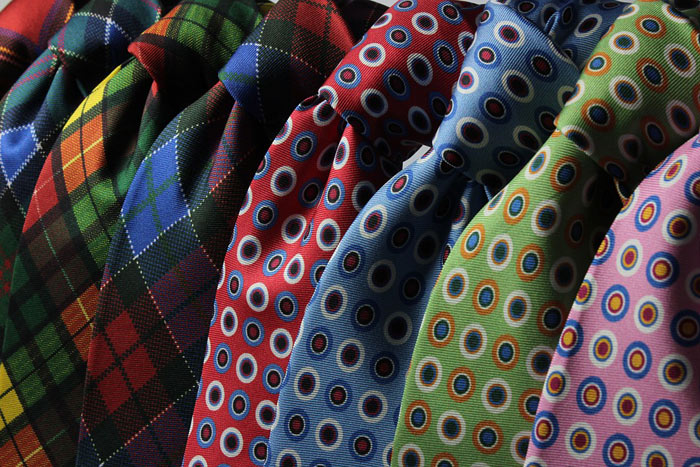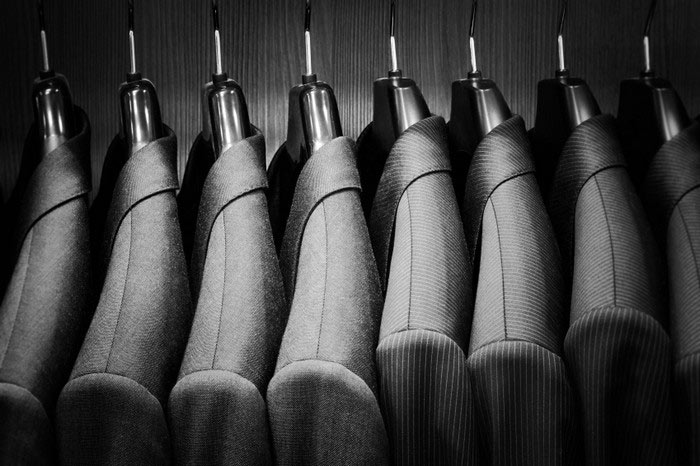In the world of fashion everyone has a unique sense of style, but creating a clothing collection is a collaborative effort. The designer is the brain behind the concept of a line, however, they are far from a one-man operation.

For every clothing designer, there are hundreds of professionals that assist in the process of getting patterns finalized, gauging demand, determining price points, producing garments, etc. People with a passion for fashion don’t have to be a designer to make a career in the industry. You can have a fulfilling, lucrative job even if your true talent is in accounting or project management.
If you’re starting your career or interested in changing your career to something with a fashion focus, consider these five fashionable jobs.
Fashion Merchandising
One job position that has a huge impact on trends and sales is fashion merchandising. You may have never heard of a fashion merchandiser before, but you have certainly seen their work. Fashion merchandisers are in charge of creating advertisements, displays and marketing campaigns to get consumers interested in a clothing line. They also help develop sales strategies for a designer label.
Education: Many employers look for applicants that have a Masters in fashion merchandising. The degree encompasses education in clothing production as well as marketing strategies and cultural studies.
Experience: In addition to past experience within fashion merchandising, working in a marketing department also helps. Job applicants who can provide a portfolio with examples of ad campaigns they’ve helped create will have a better chance of getting hired.
Retail Buyer
 Can you believe some people get paid to shop? Being a retail buyer is a highly coveted position for many fashion mavens. These are the people who are responsible for deciding which clothing items a store sells. Retail buyers have a keen fashion sense and eye for upcoming trends. It requires a vast knowledge about designers and labels. You’ll also need to work within a budget to balance how many units of each item are bought.
Can you believe some people get paid to shop? Being a retail buyer is a highly coveted position for many fashion mavens. These are the people who are responsible for deciding which clothing items a store sells. Retail buyers have a keen fashion sense and eye for upcoming trends. It requires a vast knowledge about designers and labels. You’ll also need to work within a budget to balance how many units of each item are bought.
Education: A high school diploma will be required, but a college degree is not needed in many cases. If you want to work for a large retailer, a bachelor’s degree in business or fashion merchandising will make you more competitive.
Experience: Most employers are looking for people with at least a year of experience working in retail buying. Those with a formal education but little experience may want to consider becoming a junior buyer to get their foot in the door.
Stylist
Another career opportunity is to be the stylist who puts together a finished look. Stylists can either work directly with consumers (personal stylist) or they can work for a retail store creating styles for displays.
Education: No formal education is required to become a stylist, however a degree in fashion can help.
Experience: Personal style is a calling card for stylists. Those who have spent time studying fashion trends, learning how to use color correctly and working within a retail environment have a good foundation.
Fashion Illustrator
Sometimes a designer has a fabulous idea in their head, but they don’t have the artistic talent to render the idea on paper. That’s where a fashion illustrator comes in. Fashion illustrators are kind of like a police sketch artist. The designer gives them a description of the garment they are envisioning, then the fashion illustrator creates the mockup.
Fashion illustrators may also be utilized for ad campaigns, website design and the creation of prints.
Education: No formal education is needed, however, a fine art degree can help make a job applicant more desirable.
Experience: Having experience as a fashion illustrator is one of the quickest ways to land a job. However, working as an illustrator in other industries also helps. Ultimately, all you really need is artistic talent and the ability to translate the designer’s idea into a drawing.
Fashion Market Researcher
 If you have a knack for research and interest in fashion, you may want to consider a career as a fashion market researcher. These individuals are tasked with studying the fashion market, street styles and consumer interests. They also crunch the numbers to determine how much consumers will spend on an item and suggest a price range. Fashion market researchers are on the frontline gathering information that helps a design house decide which items get produced the next season.
If you have a knack for research and interest in fashion, you may want to consider a career as a fashion market researcher. These individuals are tasked with studying the fashion market, street styles and consumer interests. They also crunch the numbers to determine how much consumers will spend on an item and suggest a price range. Fashion market researchers are on the frontline gathering information that helps a design house decide which items get produced the next season.
Education: The most desirable job candidates are those with a degree in retail merchandising with an emphasis on fashion merchandising. However, a degree in marketing or business administration can help you land a job as a fashion market researcher. A Professional Researcher Certification (PRC) from the Marketing Research Association (MRA) is also beneficial.
Experience: Design houses are looking for job candidates who have a background in data analysis and/or market research. You’ll also need to show that you can translate data into actionable information for a brand.










